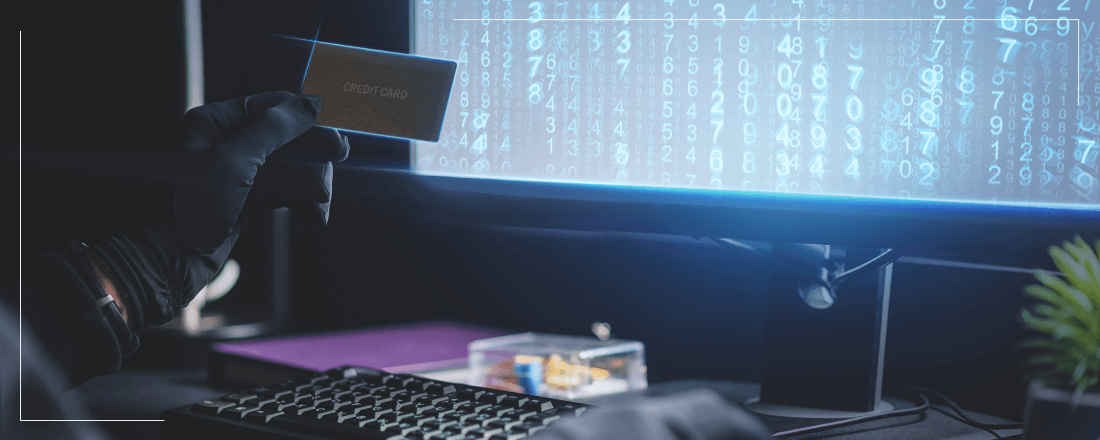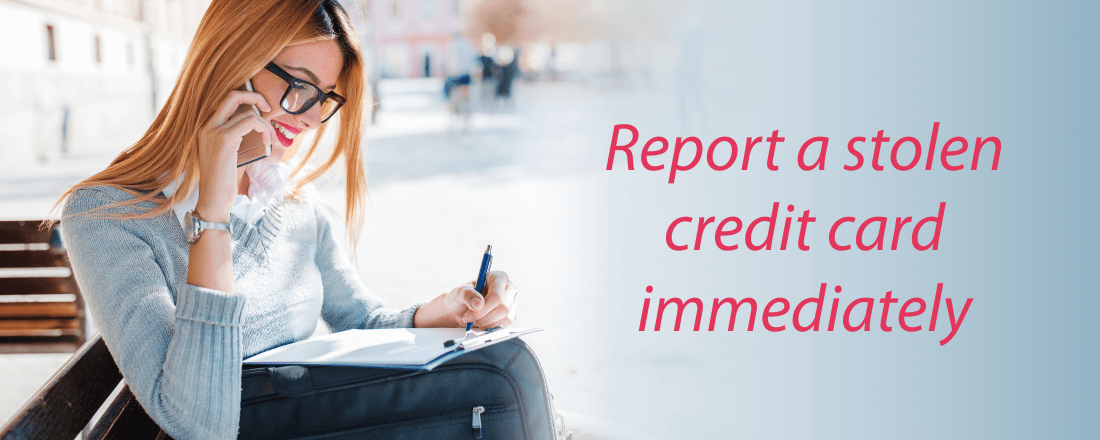
It’s a scary feeling when your credit card is stolen. Think about how much could go wrong. A thief now has the opportunity to charge whatever they want on your card and leave you responsible for footing the bill. It’s a thief’s dream, but a consumer’s worst nightmare.
As soon as you realize your credit card is missing, there are a few actions you should take immediately to limit your liability from any unauthorized purchases that may result from your card falling into the hands of the wrong person.
Call the Credit Card Company Immediately
If your credit card is missing, don’t keep this to yourself. Call your credit card company immediately. The major credit card companies have phone lines open 24 hours.
The credit company can then cancel your stolen credit card to prevent anyone from using it and issue you a new card with a new credit card number. This action in itself will eliminate plenty of potential damage on your end. The new credit card will be mailed to you. If you need it immediately, ask for the card to be overnighted to you.
If you report the credit card stolen within two business days, the maximum you may owe for any unauthorized charges is $50, per the Fair Credit Billing Act. But if you wait longer, your liability may increase to $500. Again, this is only if a thief is able to make charges on the card before the card is cancelled by the credit card company.
The credit card company’s toll-free number is listed on the back of the credit card. You may want to save this number in your smartphone. This way, if your card is stolen, you can easily access the number.
Write Everything Down
When speaking with the credit card company on the phone, it’s important to ask them for their mailing address. It’s a good practice to send the credit card company a letter explaining everything you told them on the phone. You’ll want to include details about when you learned the card was missing, the name of the credit card representative you spoke with on the phone and a quick summary of what actions the representative was going to take to rectify your situation.
This letter shows further proof that you were a responsible consumer and took the right steps to prevent a thief from using your stolen credit card. Be sure to save a copy of the letter you sent, as you may need to refer back to it during future inquiries with the credit card company.
Change Your Credit Card’s Online Portal Password
Once you realize your card is missing, you should also log on to your online portal and check to see if any unauthorized charges have been made. The representative can also provide this information, but it’s good to have this information handy yourself. This way, you can tell the representative about any specific charges that were not authorized by you. It’s also a smart idea to change your password. While this should be done every few months anyway, it’s extra important to change the password of your online credit card portal upon learning that your credit card was stolen or missing.
Monitor Your Account Closely
Even once you receive your new credit card with the new credit card number, it’s important to continue to monitor your account for the next few months. While the credit card company likely cancelled out your old credit card, a thief could still try to use the old card. While their purchases will likely be declined, it’s important to check your statement in case they are able to use your old credit card.

Any suspicious charges should be reported to the credit card company immediately. Plus, if you are traveling abroad in the weeks after your credit card was stolen, contact the credit card company before your trip. Tell them the country you are traveling to. Some credit card companies will freeze or decline purchases made overseas as they may be flagged as suspicious. If the credit card company knows that you’ll be traveling abroad, that will be confirmation that the charges from that company are authentic.
Check Your Credit Report
Consumers are entitled to one free credit report per year at AnnualCreditReport.com. A credit report shows a record of all of your credit card accounts and any car loans or mortgages in your name. Check for any suspicious activity. If you see a credit card listed on your credit report that you didn’t open, call the credit reporting bureau immediately. There are three credit bureaus, so you have three credit reports. Be sure to check each one.
Separately, upon learning of a stolen credit card, you can call the credit card bureau (different from the credit card company) and install a fraud alert on your credit report. This will let the credit bureau know to be on the lookout for any suspicious activity, such as someone trying to steal your identity to open up a credit card in your name.
Impact on Your Credit Score
If a thief is making unauthorized charges on your credit card and the balance is left on the card, your credit score will be damaged. Some 30% of your credit score accounts for how much debt you’re in. A stolen credit card is a serious matter and should be dealt with as soon as possible.
Remember, a low credit score will raise red flags when applying for a mortgage or car loan. Even if you are approved for such a loan, a low credit score will result in a higher interest rate, which means higher monthly payments. That’s why it’s important to have a high credit score, ideally above 700.

